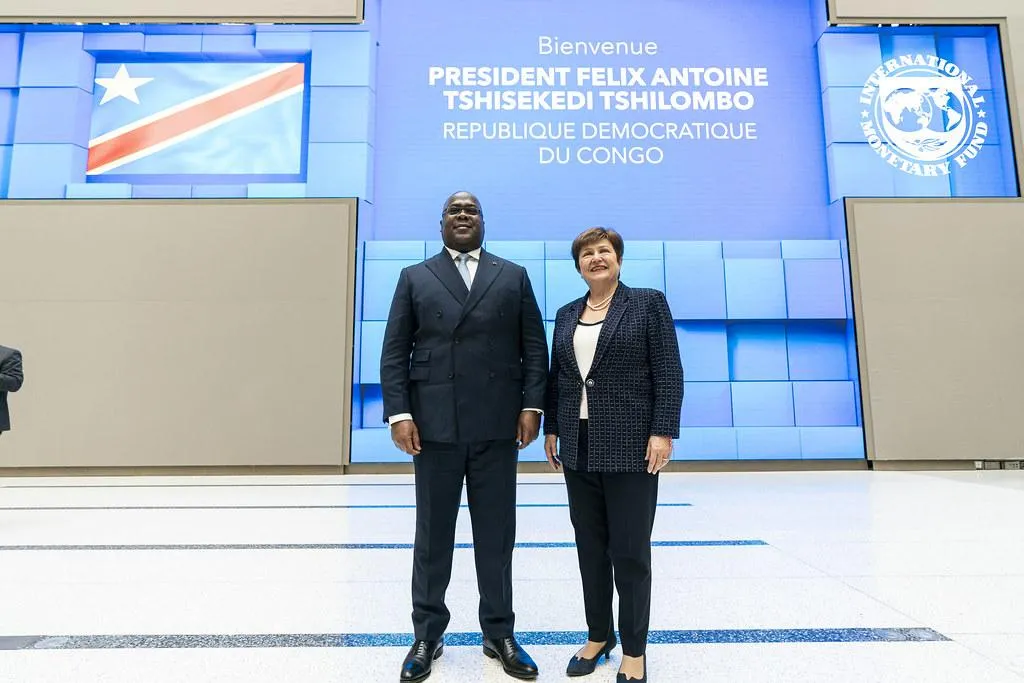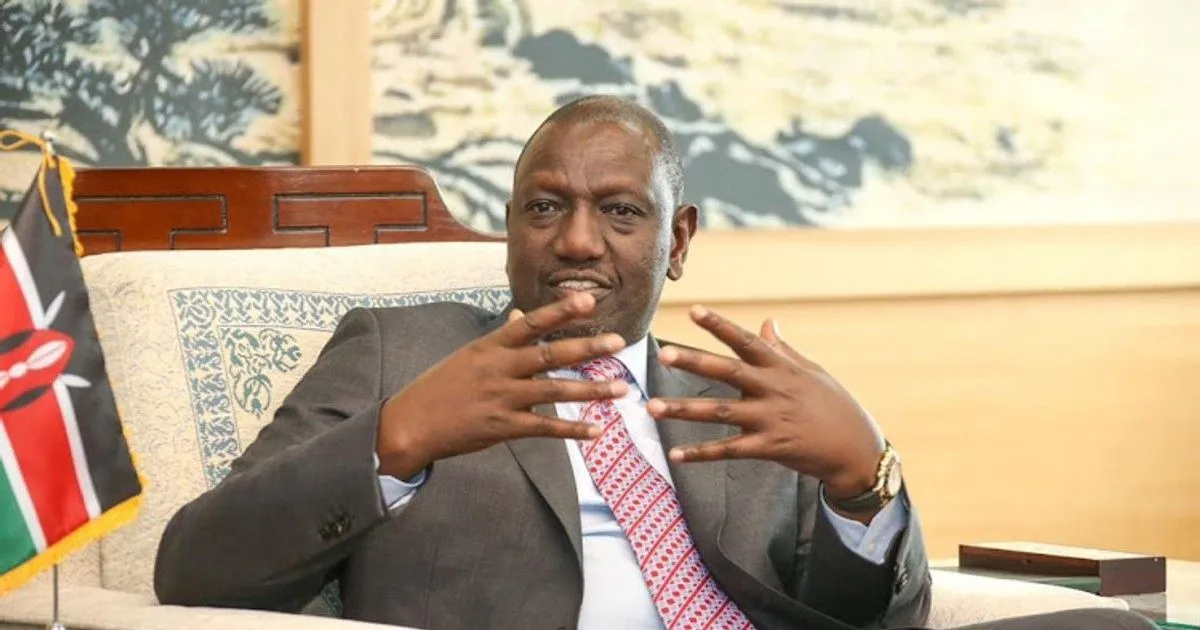As the African continent continues to emerge as a significant player in the global tech ecosystem, a critical gathering is set to take place that could shape the future of venture capital (VC) and entrepreneurship in the region. From September 9 to 13, 2024, the third Africa Venture Finance Programme will be hosted at Oxford University’s prestigious Saïd Business School. This event, sponsored by Boost Africa and AfricaGrow, will bring together 44 top fund managers from 33 African venture capital funds, marking a significant moment in the evolution of Africa’s tech industry.
A Gathering of Visionaries: The Stakes Are High
The Africa Venture Finance Programme is not just another conference; it’s a carefully curated platform designed to equip African VC fund managers with the tools, knowledge, and networks they need to drive transformative change across the continent. The program’s importance is underscored by the fact that half of the participants are women, highlighting a growing focus on gender diversity in an industry that has traditionally been male-dominated. This move aligns with broader global trends where the representation of women in senior VC roles is gradually improving, albeit slowly.
The programme is sponsored by the European Union (EU) through Boost Africa, as well as the AfricaGrow Technical Assistance Facility, which is funded by the Federal Ministry for Economic Cooperation and Development (BMZ) via KfW. This collaboration underscores the international community’s recognition of Africa’s potential and the critical role that VC can play in unlocking it.
The Power of Collaboration: European and African Partners Joining Forces
The partnership between European entities and African VC firms reflects a strategic effort to foster innovation and entrepreneurship across Africa. Boost Africa, a joint initiative of the European Investment Bank (EIB) and the African Development Bank (AfDB), aims to harness Africa’s untapped potential by supporting early-stage and growth-stage companies. The AfricaGrow initiative, on the other hand, focuses on strengthening Africa’s private sector by providing financial and technical assistance to small and medium-sized enterprises (SMEs) and startups.
These programs are crucial because they address the structural challenges that have historically hindered the growth of Africa’s tech ecosystem. By providing both capital and expertise, these initiatives are helping to build a more robust and sustainable venture capital landscape in Africa. This, in turn, is expected to drive innovation, create jobs, and contribute to economic growth across the continent.
Oxford as a Strategic Hub for African Innovation
Oxford University’s Saïd Business School is an apt venue for this gathering. Known for its cutting-edge research and focus on global business challenges, Saïd Business School provides an environment where African fund managers can engage with leading academics, investors, and industry professionals. The program’s structure includes workshops, keynote sessions, and networking events that are designed to foster collaboration and knowledge-sharing.
Prominent investors and technology professionals from around the world are slated to speak at the event, offering participants a wealth of insights into the latest trends and best practices in venture capital. Notable alumni of the program, such as Khaled Ben Jilani of AfricInvest, Keet van Zyl of Knife Capital, and Ido Sum of TLcom, will share their experiences and success stories, providing valuable lessons for the next generation of African VC leaders.
The Role of Venture Capital in Africa’s Development
Venture capital is increasingly seen as a key driver of economic development in Africa. The continent’s young, tech-savvy population, coupled with its growing middle class, presents significant opportunities for innovation and entrepreneurship. However, the lack of access to capital has been a major barrier for many startups. This is where venture capital comes in, providing the necessary funding to help startups scale and succeed.
The Africa Venture Finance Programme is expected to play a critical role in addressing this funding gap. By equipping VC fund managers with the skills and knowledge they need to identify and support promising startups, the program is helping to build a more vibrant and resilient tech ecosystem in Africa.
A Focus on Gender Diversity and Inclusion
One of the standout features of this year’s program is its emphasis on gender diversity. With half of the participants being women, the program is setting a new standard for inclusion in the VC industry. This focus on diversity is not just about ticking boxes; it’s about recognizing the value that different perspectives bring to the table.
Research has shown that diverse teams are more innovative and make better investment decisions. By increasing the representation of women in senior VC roles, the Africa Venture Finance Programme is helping to create a more inclusive industry that is better equipped to tackle the challenges and opportunities of the future.
Challenges and Opportunities in the African VC Landscape
While the potential for venture capital in Africa is immense, the industry still faces significant challenges. The lack of infrastructure, political instability, and regulatory hurdles are some of the obstacles that VC firms must navigate. Additionally, the relatively nascent nature of the African tech ecosystem means that many startups are still in the early stages of development, making them higher-risk investments.
However, these challenges also present opportunities. For VC firms that are willing to take a long-term view, there is the potential for outsized returns. The African continent is home to some of the world’s fastest-growing economies, and as these economies continue to develop, the demand for innovative solutions and technologies is expected to rise.
The Impact of the Africa Venture Finance Programme
The impact of the Africa Venture Finance Programme is expected to be far-reaching. By empowering VC fund managers with the knowledge and networks they need to succeed, the program is helping to create a more sustainable and impactful venture capital ecosystem in Africa. This, in turn, will help to drive innovation and entrepreneurship across the continent, contributing to economic growth and development.
According to Ambroise Fayolle, vice-president of the EIB, the bank is committed to funding innovative solutions to global challenges. “We are proud of Boost Africa’s role in supporting a vibrant and resilient VC ecosystem in Africa and helping African entrepreneurs transform their ideas into successful businesses,” he said.
Oxford programme director Aunnie Patton Power echoed these sentiments, noting that the Africa Venture Finance Programme reflects the effective, high-caliber initiatives offered by Saïd Business School. “This program is about more than just providing capital; it’s about building the capacity of African fund managers to drive meaningful change in their communities,” she said.
Martin Ewald, lead portfolio manager of Impact Investments at Allianz Global Investors, also emphasized the importance of the program. “Our investments and technical assistance programs are designed to empower local first-time funds, extending our impact beyond our immediate portfolio. The Africa Venture Finance Programme offers a unique opportunity for fund managers to exchange knowledge, create strong networks, and forge valuable partnerships,” he said.
Looking Ahead: The Future of Venture Capital in Africa
As the Africa Venture Finance Programme draws to a close, the participants will return to their respective countries armed with new knowledge, insights, and connections. These fund managers are expected to play a critical role in shaping the future of Africa’s tech ecosystem, supporting the next generation of entrepreneurs and helping to build a more inclusive and sustainable economy.
The program’s success also highlights the growing recognition of Africa’s potential as a hub for innovation and entrepreneurship. With the support of initiatives like Boost Africa and AfricaGrow, the continent’s venture capital industry is poised for significant growth in the coming years. This, in turn, will help to unlock new opportunities for African startups, creating jobs, and driving economic development across the continent.
In conclusion, the Africa Venture Finance Programme at Oxford represents a pivotal moment for the African venture capital industry. By bringing together some of the continent’s top fund managers and providing them with the tools they need to succeed, the program is helping to build a more vibrant, inclusive, and impactful venture capital ecosystem in Africa. As these fund managers return home, they will be at the forefront of a new wave of innovation and entrepreneurship, driving the continent’s tech potential to new heights.
photo source: Google
By: Montel Kamau
Serrari Financial Analyst
6th September, 2024
Article, Financial and News Disclaimer
The Value of a Financial Advisor
While this article offers valuable insights, it is essential to recognize that personal finance can be highly complex and unique to each individual. A financial advisor provides professional expertise and personalized guidance to help you make well-informed decisions tailored to your specific circumstances and goals.
Beyond offering knowledge, a financial advisor serves as a trusted partner to help you stay disciplined, avoid common pitfalls, and remain focused on your long-term objectives. Their perspective and experience can complement your own efforts, enhancing your financial well-being and ensuring a more confident approach to managing your finances.
Disclaimer: This article is for informational purposes only and does not constitute financial advice. Readers are encouraged to consult a licensed financial advisor to obtain guidance specific to their financial situation.
Article and News Disclaimer
The information provided on www.serrarigroup.com is for general informational purposes only. While we strive to keep the information up to date and accurate, we make no representations or warranties of any kind, express or implied, about the completeness, accuracy, reliability, suitability, or availability with respect to the website or the information, products, services, or related graphics contained on the website for any purpose. Any reliance you place on such information is therefore strictly at your own risk.
www.serrarigroup.com is not responsible for any errors or omissions, or for the results obtained from the use of this information. All information on the website is provided on an as-is basis, with no guarantee of completeness, accuracy, timeliness, or of the results obtained from the use of this information, and without warranty of any kind, express or implied, including but not limited to warranties of performance, merchantability, and fitness for a particular purpose.
In no event will www.serrarigroup.com be liable to you or anyone else for any decision made or action taken in reliance on the information provided on the website or for any consequential, special, or similar damages, even if advised of the possibility of such damages.
The articles, news, and information presented on www.serrarigroup.com reflect the opinions of the respective authors and contributors and do not necessarily represent the views of the website or its management. Any views or opinions expressed are solely those of the individual authors and do not represent the website's views or opinions as a whole.
The content on www.serrarigroup.com may include links to external websites, which are provided for convenience and informational purposes only. We have no control over the nature, content, and availability of those sites. The inclusion of any links does not necessarily imply a recommendation or endorsement of the views expressed within them.
Every effort is made to keep the website up and running smoothly. However, www.serrarigroup.com takes no responsibility for, and will not be liable for, the website being temporarily unavailable due to technical issues beyond our control.
Please note that laws, regulations, and information can change rapidly, and we advise you to conduct further research and seek professional advice when necessary.
By using www.serrarigroup.com, you agree to this disclaimer and its terms. If you do not agree with this disclaimer, please do not use the website.
www.serrarigroup.com, reserves the right to update, modify, or remove any part of this disclaimer without prior notice. It is your responsibility to review this disclaimer periodically for changes.
Serrari Group 2025





